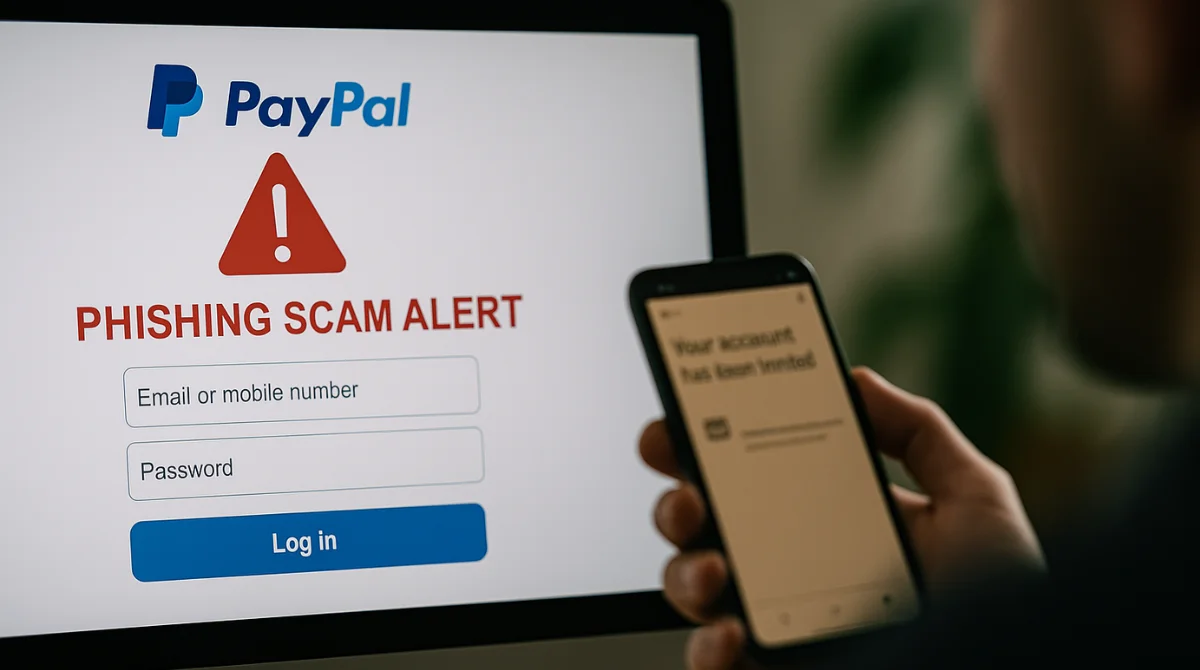PayPal users across the UK are being warned about a surge in sophisticated phishing scams designed to steal personal and financial information. Fraudsters are sending convincing emails and text messages that appear to be from PayPal, claiming that the recipient’s account has been “limited” or “suspended” due to security concerns. These messages often include links to fake websites that closely mimic PayPal’s official site, aiming to deceive users into entering their login credentials and other sensitive information.
The fraudulent emails typically use generic greetings like “Dear User” or “Dear PayPal Customer,” rather than addressing the recipient by their full name. They often contain urgent messages stating that the user’s account has been restricted and that immediate action is required to restore access. The emails include links that, when clicked, direct users to counterfeit PayPal websites designed to harvest login details and other personal information. These phishing sites may look nearly identical to the legitimate PayPal site, making it difficult for users to distinguish them from the real thing.
Security experts advise PayPal users to be vigilant and cautious when receiving unsolicited communications. They recommend the following steps to protect oneself from falling victim to these scams:
- Verify the Source: Check the sender’s email address carefully. Official PayPal emails will come from addresses ending in “@paypal.com.”
- Avoid Clicking on Links: Do not click on links or download attachments from unsolicited emails or messages. Instead, log in to your PayPal account directly by typing “www.paypal.com” into your browser’s address bar.
- Look for Red Flags: Be wary of messages that create a sense of urgency or ask for personal information. Legitimate companies will never ask for sensitive information via email or text message.
- Report Suspicious Activity: If you receive a suspicious email or message, report it to PayPal by forwarding it to [email protected]. Additionally, report the incident to Action Fraud, the UK’s national fraud and cybercrime reporting centre.
PayPal has issued guidance to help users identify and deal with phishing attempts. They emphasize that all communications from PayPal to account holders would be sent to the secure message centre within their PayPal account. A genuine PayPal email will only ever address you by your full name, and the company will never ask for sensitive information via email or text message. Users are encouraged to log in to their PayPal account directly to check for any new activity or messages.
As online fraud continues to evolve, it is crucial for PayPal users to remain vigilant and informed about potential scams. By following the recommended security practices and staying alert to suspicious communications, users can better protect themselves from falling victim to phishing attacks. For more information on how to stay safe online when using PayPal, visit PayPal’s official security centre.
Related News: Will Ferrell Stars in New PayPal Campaign



